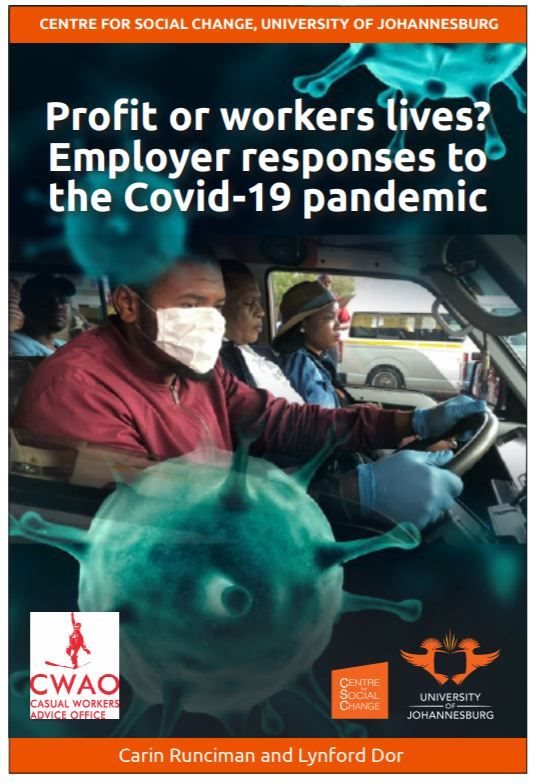
The report is based on analysis of 75 companies ranging from large to small-to-medium enterprises. 35 of the companies analysed remain operational while 40 have ceased operating under the lockdown.
The report highlights significant and concerning gaps in the occupational health and safety measures at companies that are continuing to operate. Further, it demonstrates that employers that have shut down during the lockdown have largely not sought to alleviate the burden on workers through applying for the Covid-19 Temporary Employee/Employer Relief Scheme (C19 TERS) and instead are mostly forcing workers to take paid and unpaid leave. This is despite the fact the minister of employment and labour has implored employers not to do this.
The key findings show:
The Covid-19 pandemic poses unique and complex socio-economic challenges for South Africa. To address the urgent needs of workers, their families and communities the report makes the following recommendations: